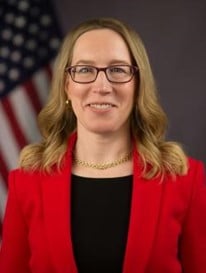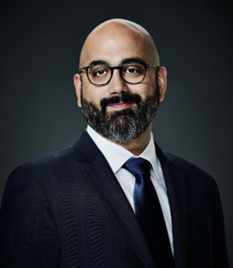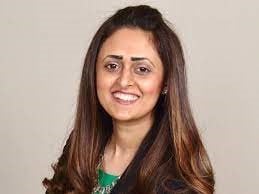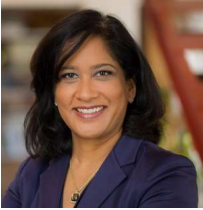
The leading U.S. financial regulators are active participants in a movement among supervisory agencies around the world to support technological innovation. But, until February, two prominent banking overseers did not have heads of innovation.
Now these programs of the Federal Deposit Insurance Corp., with the hiring of Sultan Meghji, and Federal Reserve Board, with Sunayna Tuteja, have caught up to the Office of the Comptroller of the Currency, Commodity Futures Trading Commission and Securities and Exchange Commission in that regard. Both innovation officer appointees have strong financial technology credentials.
In a further infusion of seasoned talent at a higher management level, the Federal Reserve Bank of New York, a crucial operating component of the Federal Reserve System, has filled the post of first vice president - its chief operating officer, ranking second to president and chief executive officer John C. Williams - with former Morgan Stanley Wealth Management chief digital officer Naureen Hassan. The bank's search committee included board chair Denise Scott; deputy chair Rosa M. Gil, founder, president and CEO of Comunilife Inc.; Vincent Alvarez, president of the New York City Central Labor Council, AFL-CIO; and Nasdaq president and CEO Adena T. Friedman.
“Naureen's leadership experience and operational expertise are fully aligned with what the search committee and I envisioned for this role,” Scott, who is executive vice president of the Local Initiatives Support Corp., said in a March 3 statement. President Williams said that Hassan's “leadership background, deep commitment to fostering diverse teams, and extensive technology and financial experience will be critical to her role as a bank leader.”
Openness and Diversity
Such personnel moves are in keeping with efforts across the global regulatory community to integrate, encourage, and collaborate on technology and innovation, as embodied in the missions of the Global Financial Innovation Network and the Bank for International Settlements' Innovation Hub. Supervisors and central banks have opened up to nontraditional skills and backgrounds, enhancing diversity in the process.

“An industry that is so defined by regulation, as the legacy financial industry is, can be a hostile place for creative thinkers,” SEC member Hester Peirce observed March 1 at an Institute of International Bankers (IIB) fintech discussion. She said one way to overcome the difficulties of engaging with new technologies and ideas is a “more welcoming approach”; an example she cited is the Office of the Comptroller of the Currency's now five-year-old responsible innovation framework.
Peirce added, “Recent chairmen of the Commodity Futures Trading Commission - Chris Giancarlo and Heath Tarbert - made a concerted effort to welcome and encourage innovation in their space, including by founding LabCFTC . . . Although the SEC has had an uneven response to fintech innovation, a recent positive step was the elevation of the FinHub - our office dedicated to fintech issues - to a standalone office in the SEC, with an expanding staff and Valerie Szczepanik remaining its leader and reporting directly to the chairman.”
Fintech Company Founder
The FDIC Tech Lab (FDiTech) has been active since 2019. Chairman Jelena McWilliams wrote in October that year, in an American Banker article, “We are looking for techies to join our ranks: from a chief innovation officer to lead FDiTech to quants, data scientists, process engineers, software developers and network security experts who can reshape our supervisory approach in a rapidly evolving digital world and help protect our financial system. We want disruptors and visionaries. We want people who wake up in the morning and ask, 'Why not?' We want people who have the foresight to dream big and the smarts and determination to make those dreams a reality.”
Even without a “CIO” on board, FDiTech last June launched a showcase, rapid-prototyping hackathon “to develop an innovative new approach to financial reporting, particularly for community banks.” As of January, the “tech sprint” had entered a third and final phase, narrowed down to 11 competitors. One of them, Neocova, was co-founded in 2016 by Sultan Meghji, whose appointment as chief innovation officer was announced February 16.

More than an entrepreneur - St. Louis-based Neocova provides cloud-native artificial intelligence, analytics and other systems to community banks and credit unions - Meghji is a nonresident scholar in the Cyber Policy Initiative at the Carnegie Endowment for International Peace, an adjunct professor at Washington University's Olin Business School, and has been an adviser to the U.S. Treasury, Group of Seven, Office of the Comptroller of the Currency and Federal Bureau of Investigation in the areas of cybersecurity, quantum computing and AI.
With a BS degree from the University of Illinois at Urbana-Champaign, Meghji began his career at the National Center for Supercomputing Applications, developing AI systems and first-generation Internet technologies. Over his career, he has made business and technology leadership contributions to such organizations as ABN AMRO, American Express, Monsanto and United Airlines.
Before Neocova, where he was CEO (and has been succeeded by Matt Beecher), Meghji worked on an aid mission to help implement digital banking in Kenya and Uganda. He worked alongside fintechs and central banks on peer-to-peer banking solutions to reach hundreds of thousands of people in underserved areas.
“As a recognized expert in financial technology, Sultan brings years of technical knowledge and an entrepreneurial spirit to our FDiTech team,” said FDIC chief McWilliams. “Under his leadership, I am confident we will find innovative ways to utilize technology to modernize our bank supervision, enable community banks to adopt technological solutions, and bring more underserved people into the financial fabric of our nation.”
Meghji said he is “immensely honored to join a team that is working towards finding innovative ways to meet the challenges of tomorrow. It is important that the FDIC leads at this transformative moment in our nation's banking history. My personal mission is to engage both public and private sector partners to ensure the financial system of the future is innovative, resilient, and equitable.”
Digital-Asset Expertise
Sunayna Tuteja's official start as Federal Reserve chief innovation officer was February 22, said the Federal Reserve Bank of Richmond, where the Fed system's IT organization is centered. A senior vice president, according to the announcement, “she will lead efforts to identify, research, enable and advocate for new technologies while fostering a culture of innovation, collaboration and experimentation.”

“Innovation is fundamental to the Fed's IT strategy, so I am very excited that Sunayna was willing to take on this new opportunity,” said Ghada Ijam, Federal Reserve System chief information officer since January 2020. “She will be collaborating with business and technology leaders to formulate an agenda that advances technology research and leverages the great innovation work already underway across the Fed.”
Tuteja worked for more than 10 years at TD Ameritrade, most recently as head of digital assets. Given her grounding in virtual currencies and distributed ledger, or blockchain, technology, her joining the central bank's technology organization was seen by crypto proponents who are seeking regulatory guidance as an encouraging sign. “This is a big deal,” tweeted Galaxy Digital Holdings' Michael Novogratz.
SEC Commissioner Peirce has decried “the lack of clarity around crypto, which is becoming a larger problem as legacy financial institutions seek to interact with, and give their clients onramps to, this sector.” In her recent IIB remarks, Peirce deemed her own agency “slow to provide regulatory certainty on a host of crypto-related issues, including when a sale of digital assets will be treated as a securities offering, and when digital assets sold in a securities offering can trade without being subject to the securities laws . . . The SEC needs a clearer approach to considering applications for crypto ETPs [exchange-traded products] that is more consistent with precedent,” and she suggested that chairman-designate Gary Gensler “will bring [to the job a] deep appreciation for the growth and ingenuity in the digital assets space and the need for regulatory clarity for financial institutions looking to engage with that activity.”
Crowdfund Insider described Tuteja as “a vocal supporter of Bitcoin” who declared TD Ameritrade to be “bullish” on blockchain and led the brokerage's investment in the CFTC-regulated ErisX trading platform.
The University of Alberta graduate's other roles at TD Ameritrade, which was acquired last year by Charles Schwab Corp., included head of strategic partnerships and emerging technology, and head of digital strategy, experience and innovation.
Leading Digital Transformation
Michael Strine's retirement as Federal Reserve Bank of New York first vice president and COO, announced last September, set off a search for “an ideal candidate [who] will have extensive leadership experience, a strong track record of advancing diversity and inclusion, and demonstrated people management, collaboration, and communication skills, among other attributes.” Bridge Partners was retained for the search, and the selection of Naureen Hassan was subject to approval by the Federal Reserve Board of Governors.

In the last four years of her 25-year financial services industry career, Hassan was chief digital officer of Morgan Stanley Wealth Management and was a member of the unit's operating committee. She was responsible for digital transformation, strategy and delivery, focused on modernizing how the firm and its advisers acquire, serve and interact with clients. She led the product development teams that built digital marketing capabilities, consumer-facing technologies and artificial intelligence-enabled platforms for advisers, and was responsible for the call-center-based advisory business line.
Hassan was previously executive vice president and executive committee member of Charles Schwab Corp., leading Investor Services strategy, segments and platforms. In that role, she was responsible for the strategy, client experience and digital channels supporting individual investors holding $1.3 trillion in client assets. She was also COO of Schwab Bank and had leadership roles in Schwab Advisor Services, the custodial platform for nearly 7,000 independent advisory firms.
Earlier in her career, Hassan worked at McKinsey & Co., specializing in operational and process design for retail and healthcare firms. A Princeton University BA and Stanford University Graduate School of Business MBA, she is a former director of digital identity and security company OneSpan and of Ascensus, the largest U.S. independent recordkeeping services provider, third-party administrator, and government savings facilitator.